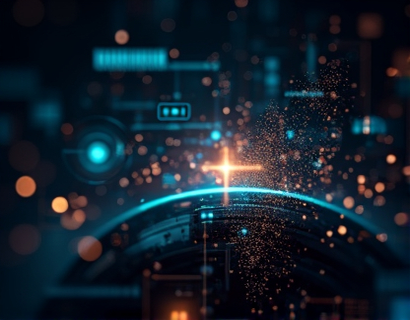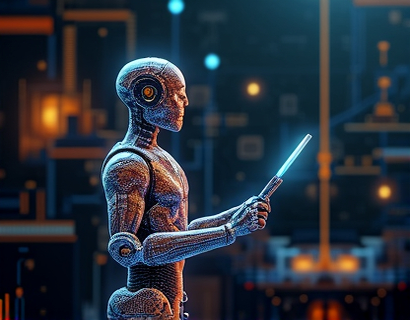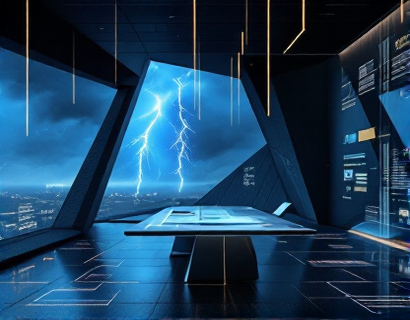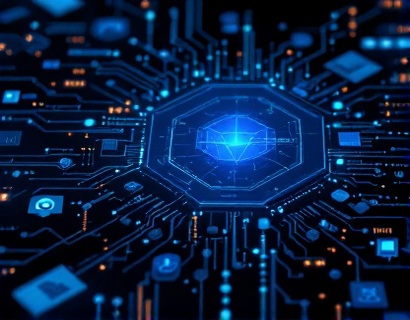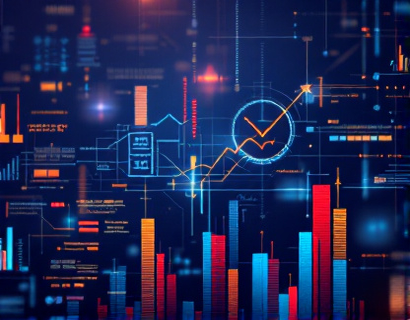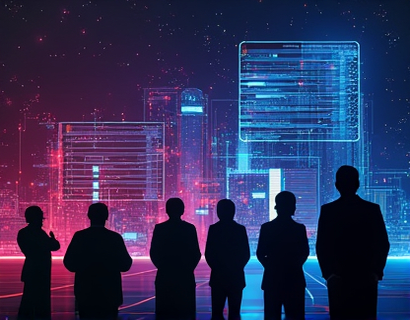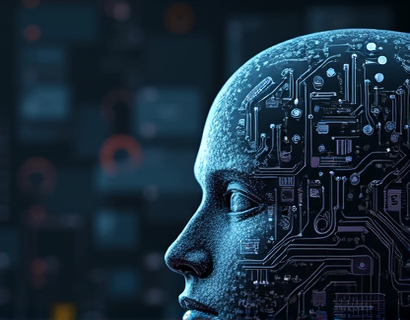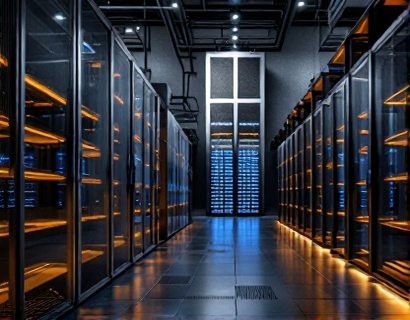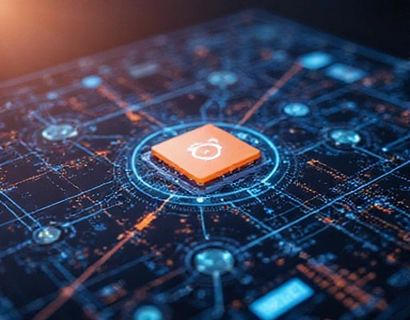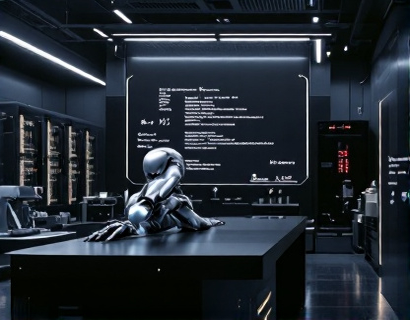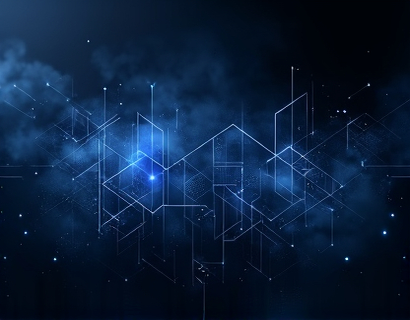Decentralized DAOs: Leading the Charge in Web3 Governance with Community Empowerment and Transparency
In the rapidly evolving landscape of Web3, decentralized autonomous organizations (DAOs) are emerging as pivotal entities in the governance of digital protocols. These organizations leverage blockchain technology to create transparent, community-driven governance models that empower members and ensure accountability. This article delves into the core principles of DAOs, their role in Web3 governance, and how they are revolutionizing the way digital protocols are managed, fostering a more interconnected and collaborative digital future.
Understanding DAOs
Decentralized autonomous organizations, or DAOs, are digital entities that operate on blockchain networks. They are governed by smart contracts, which are self-executing contracts with the terms of the agreement directly written into code. This eliminates the need for intermediaries and central authorities, allowing for a more democratic and transparent decision-making process. DAOs are typically funded through token sales, where token holders have voting rights proportional to their token ownership, enabling community members to participate in governance decisions.
Community Empowerment
One of the most significant advantages of DAOs is their ability to empower communities. Traditional governance models often concentrate power in the hands of a few, leading to decisions that may not align with the broader community's interests. In contrast, DAOs distribute power among token holders, ensuring that every voice is heard. This democratization of governance fosters a sense of ownership and responsibility among community members, encouraging active participation and collaboration.
Community empowerment in DAOs is not just a theoretical concept; it is put into practice through various mechanisms. For instance, proposal and voting systems allow members to suggest and vote on changes to the organization's rules or projects. This process ensures that decisions are made collectively, reflecting the collective will of the community. Moreover, DAOs often have transparent communication channels, such as forums and chat groups, where members can discuss ideas, provide feedback, and stay informed about ongoing initiatives.
Transparency in Governance
Transparency is a cornerstone of DAO governance. All transactions, proposals, and voting results are recorded on the blockchain, making them immutable and accessible to anyone. This level of transparency builds trust among community members and external stakeholders, as there is no room for hidden agendas or corrupt practices. The immutable nature of blockchain ensures that once a decision is made, it cannot be altered, providing a high degree of accountability.
Furthermore, DAOs often publish detailed reports and analytics, giving members insights into the organization's performance and financial health. This openness not only enhances trust but also encourages informed decision-making. Community members can track the progress of projects, monitor the usage of funds, and hold leaders accountable, ensuring that the organization remains true to its mission and values.
Scalability and Innovation
Scalability is a critical factor in the success of DAOs, especially as the Web3 ecosystem continues to grow. Traditional governance models often struggle to scale, leading to bottlenecks and inefficiencies. DAOs, however, are designed to scale organically through their decentralized nature. As more members join and participate, the organization can adapt and grow without losing its core principles of transparency and community empowerment.
Innovation is another key aspect of DAOs. The use of smart contracts and decentralized protocols allows for the creation of new governance models and tools that can address emerging challenges. For example, DAOs can implement automated governance systems that use algorithms to propose and vote on changes, reducing the burden on human members and increasing efficiency. Additionally, the integration of advanced technologies like artificial intelligence and machine learning can enhance decision-making processes, providing data-driven insights and predictions.
Case Studies: Successful DAOs in Web3
Several DAOs have demonstrated the potential of this governance model in the Web3 space. One notable example is the MakerDAO, which manages the stablecoin DAI on the Ethereum blockchain. MakerDAO is governed by its token holders, who participate in decision-making through a decentralized voting system. This has allowed the platform to maintain stability and resilience, even in volatile market conditions.
Another example is the Aragon DAO, a platform that enables the creation and management of decentralized organizations. Aragon provides tools for token issuance, governance, and community building, making it easier for new DAOs to form and thrive. The platform's success lies in its user-friendly interface and robust governance mechanisms, which have attracted a diverse range of projects and communities.
Challenges and Considerations
While DAOs offer numerous benefits, they also come with challenges that need to be addressed. One of the primary concerns is the technical complexity involved in setting up and managing a DAO. Not all community members may have the technical expertise required to participate fully, which can lead to disparities in participation. To mitigate this, DAOs can invest in educational resources and support systems, helping members understand the underlying technology and governance processes.
Another challenge is the potential for governance attacks, such as sybil attacks, where an entity creates multiple fake identities to gain disproportionate influence. To counter this, DAOs can implement robust identity verification mechanisms and use reputation systems to ensure that active and trustworthy members have a greater say in governance decisions.
The Future of DAOs in Web3
The future of DAOs in Web3 governance is promising, with ongoing developments poised to enhance their capabilities and adoption. As blockchain technology matures, we can expect more sophisticated tools and platforms that simplify the process of creating and managing DAOs. Interoperability between different blockchain networks will also play a crucial role, enabling DAOs to collaborate and share resources across ecosystems.
Moreover, the integration of DAOs with other Web3 applications, such as decentralized finance (DeFi) and non-fungible tokens (NFTs), will create more comprehensive and interconnected governance models. This integration can lead to innovative use cases, such as community-driven DeFi protocols and NFT marketplaces, where token holders have a direct say in the management and direction of these platforms.
In conclusion, DAOs are at the forefront of Web3 governance, offering a powerful framework for community empowerment, transparency, and scalability. By leveraging blockchain technology, DAOs are reshaping how digital protocols are managed, paving the way for a more decentralized and inclusive digital future. As the Web3 ecosystem continues to evolve, DAOs will play an increasingly vital role in driving innovation and fostering collaboration among community members.




